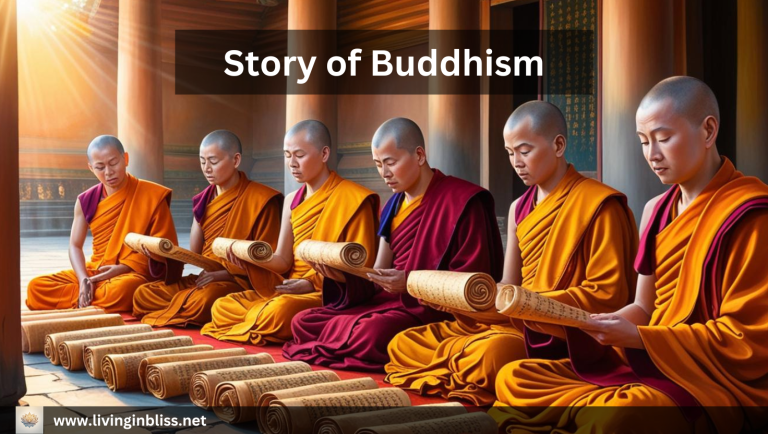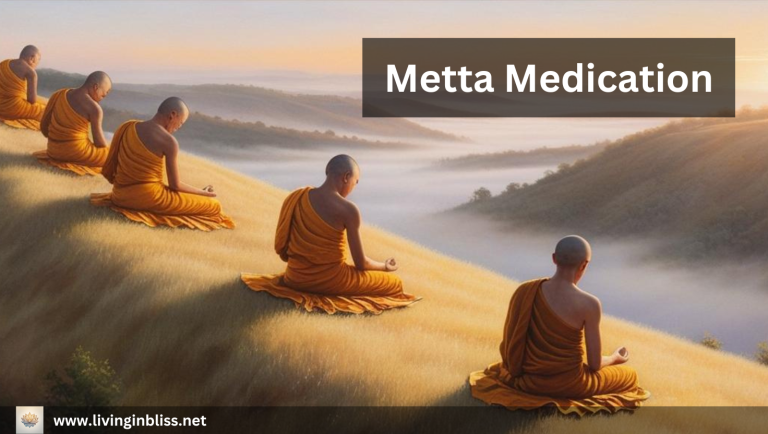What Is Buddhism?

This world evolves with different beliefs, cultures, and philosophies. Religions are prominent in shaping and molding different societies worldwide and creating values. Though the world is rapidly moving towards an AI future, people now pay more attention to mindfulness and mental peace. At this point, the religious values, beliefs, and philosophies come into the picture. Buddhism, one of the oldest philosophies, has a greater weight among such beliefs. So, let us see what Buddhism is.
Introduction to Buddhism
The introduction to the Buddhist religion is fascinating. Buddhism was born in the late 6th century in India. The funder was Siddartha Gautama, the Shakya prince who later left all the privileges and luxury to find the noble and eternal truth about human life and eliminate the pain for everlasting happiness and satisfaction. Prince Sidratha was kind and generous, sharing what he learned through great sacrifices with all of humankind with the ambition of making them see the absolute truth about life. The spirit and essence of these teachings are called Dhamma.
Buddhism’s Origins And History
Prince Siddartha was the warrior son of a great king and queen. As the legend says, a soothsayer at Birth predicted that he would become a great personality who would enlighten humankind. However, the father king was not happy with the news, and he ensured that the prince would stay focused on his ultimate goal of becoming a great worrier king of the nation. He provided the price with all the luxurious pleasures. But seeing four pre-indications, Prince Siddartha understands there’s more to this human life. Also, understanding the burdens of life becomes deeper once Prince Rahula, the son of Prince Siddartha, was born. Finally, he leaves all pleasure to find the truth and forever satisfaction. The path to enlightenment or Nirvana provides honest answers and a permanent release from suffering.

Buddhism is a very realistic and practical religion, and it is more of a Buddhist philosophy. More than a religion, you can call it a philosophy you could follow and incorporate into your daily routines and lifestyles that would turn you into a better human being. It is simple yet describes the pure truth of human life through examples of the teachings of lord Buddha, the great founder of this concept. This philosophy or Buddha’s teachings does not include assumptions or abstract theories but is based on practical facts. There is no religion, no worshipping of a deity, or deification of the Buddha. It has straightforward forward, applicable facts about the human condition, and nothing is based on wishful thinking. Everything in Buddhism is based on observations of the way things are. All of it was the practical knowledge of Lord Buddha about human life.
If we straightforwardly look at life, we will see it is a burden total of frustration, grief, and pain. This is all because we are never happy enough with the attempts we make in life. All the happiness we intend to have depends on the material aspects of life. Then, spiritual happiness automatically gets away from us. Ego, selfishness, jealousy, and hatred in the human mind are the most poisonous things that destroy inner peace. Buddhism explains all of these concepts with beautiful examples that are easy to understand.
Basics of Buddhism
Buddhism is a philosophy that teaches several elementary principles for life. It is more of a set of advice that helps you shape your mind. The Buddhists believe in Buddha[ lord Buddha himself], Dhamma[ the great teachings of Lord Buddha], and sangha [ the monks who carry out the sacred teachings of Buddha]. These three aspects are considered the most important apart from the Core Principles of Buddhism.
The four noble truths are the essence of Buddha’s teachings. Though this great philosophy has more depth and unexplained areas, understanding the four noble truths is enough to see the correct way to eternal freedom. For that, one needs to understand the truth of suffering, the truth of the cause of suffering, the truth of ending the suffering, and the truth of the path that leads to the end of suffering. In simpler terms, it is that suffering exists, and it has a cause that has an end and a reason to bring about that end. Its essential teaching is to know the cause of pain and embrace all pleasures of life, knowing the limits. In the end, we all will embrace the universal truth of ageing, sickness, and death, which are unavoidable.
Buddhism And Its Core Values
The four noble truths are contingency plans for dealing with humankind’s suffering. According to Buddhism, desire and ignorance are the root causes of suffering. Desire brings suffering. Ending the suffering has two ways. One is to end the suffering of this present life on earth or in spiritual life through attaining Nirvana. When one achieves Nirvana, which is a transcendent state free from suffering, the cycle of Birth, death, and re-birth comes to an end. This could be achieved by taking the eightfold path. The steps for the eightfold path are simple. The eight steps are the proper understanding, right thoughts, right speech, right actions, right livelihood, right effort, right mindfulness, and right concentration. Also, good moral conduct, meditation, mindfulness, mental development, wisdom, and insights will help you to move forward in this eightfold path.
Karma is a crucial principle of Buddhism. It refers to the good or bad actions that a person practices during a lifetime. Positive actions bring happiness and satisfaction, while negative actions do the opposite. This is believed to be one of the main areas around which Buddhist philosophy has been built.

Rebirth and the continuation of the samsara cycle are other Buddhist concepts. According to Buddhist philosophy, there are six separate places where one can be reborn: three fortunate realms and three unfortunate realms. Positive Karma will make you reborn in positive realms, whereas negative Karma will make you reborn in unfortunate realms. The highest form of rebirth is the realms of man or the human form. Demigods and gods are the other forms of this. The unfortunate realms are of animals and ghosts where untold suffering takes place. Being born as a human or a man also offers another bonus; it is the only form you can attain Nirvana, which is spiritual bliss.
Buddhist Beliefs And Practices
Understanding Buddhism is simple as it relates to daily life practices. The fundamental truth explained in Buddhism is that no one, not even a prince, can escape sickness, death, and old age. Understanding and practicing the four noble truths is the only way to free oneself from this unpleasant reality.
Also, the Buddhists believe in below.
- Everything about life is impermanent and constantly changing.
- A life based on possessing things or persons doesn’t make you happy because nothing is permanent.
- No one is the eternal or an unchanging soul, and the “self” is just a collection of changing characteristics or attributes that depend on time.
Also, Buddhists believe in and practice the five precepts daily.
- Do not harm or kill living things.
- Only take things if they are freely given.
- Do not get involved in sexual misconduct.
- Do not speak harsh words or tell lies.
- Do not consume drugs or drink alcohol.
The Buddhists believe in life after death. The more you do good and live a decent life during this Birth, the more you will attain a better life during your next Birth. If you are involved in misdeeds and lead an unpleasant life, you will be born into an unfortunate life. Karma and the cycle of rebirth are the other key concepts and the Buddhist teachings that the Buddhists believe in.
Buddhist Spirituality
What do Buddhists believe? Buddhism’s primary teaching is how to free yourself from suffering. The teachings include accessible practices. Buddhism is understanding yourself along with the teachings of Buddha. Meditation and practicing Buddhist theories heal you from all life’s hardships. Also, many engage in different rituals when practicing Buddhism. Some rituals are carried out to respect Buddha, while others heal the inner self.
Chanting of Gathas or the pirith is one of the ways that you could heal yourself. Each aspect of Buddhism has its special gathas. The Buddhists chant or recite them often for spiritual healing. They visit the temples frequently, especially on the full moon Poya days, where they devote themselves to practicing the religion. This is called observing seela.
Offering flowers and incense and lighting oil lamps are Buddhists’ most common rituals in the temple. They also highly celebrate the Birth, enlightenment, and passing away of Lord Buddha, which falls on the Vesak full moon Poya day. Many engage in spiritual practices, decorate their houses with lanterns, and make Vesak Pandals. Also, Buddhists seek the blessings of Buddha before any momentous occasion in their lives. Therefore, spirituality and the practice of religion are considered very important in the life of a Buddhist devotee.

Overview of Buddhism
Buddhism is one of the oldest and most significant religions in the world. Its simple practices help you understand a more profound truth through real-life experiences. It is more of a philosophy that gets you on the correct path of eternal happiness or nirvana. Also, it’s a much more systematic approach to a longer journey. Buddhism for beginners explains the Buddhist principles in the simplest ways so that anyone new to these practices can understand and follow Buddha’s teachings and focus on attaining eternal enlightenment.






